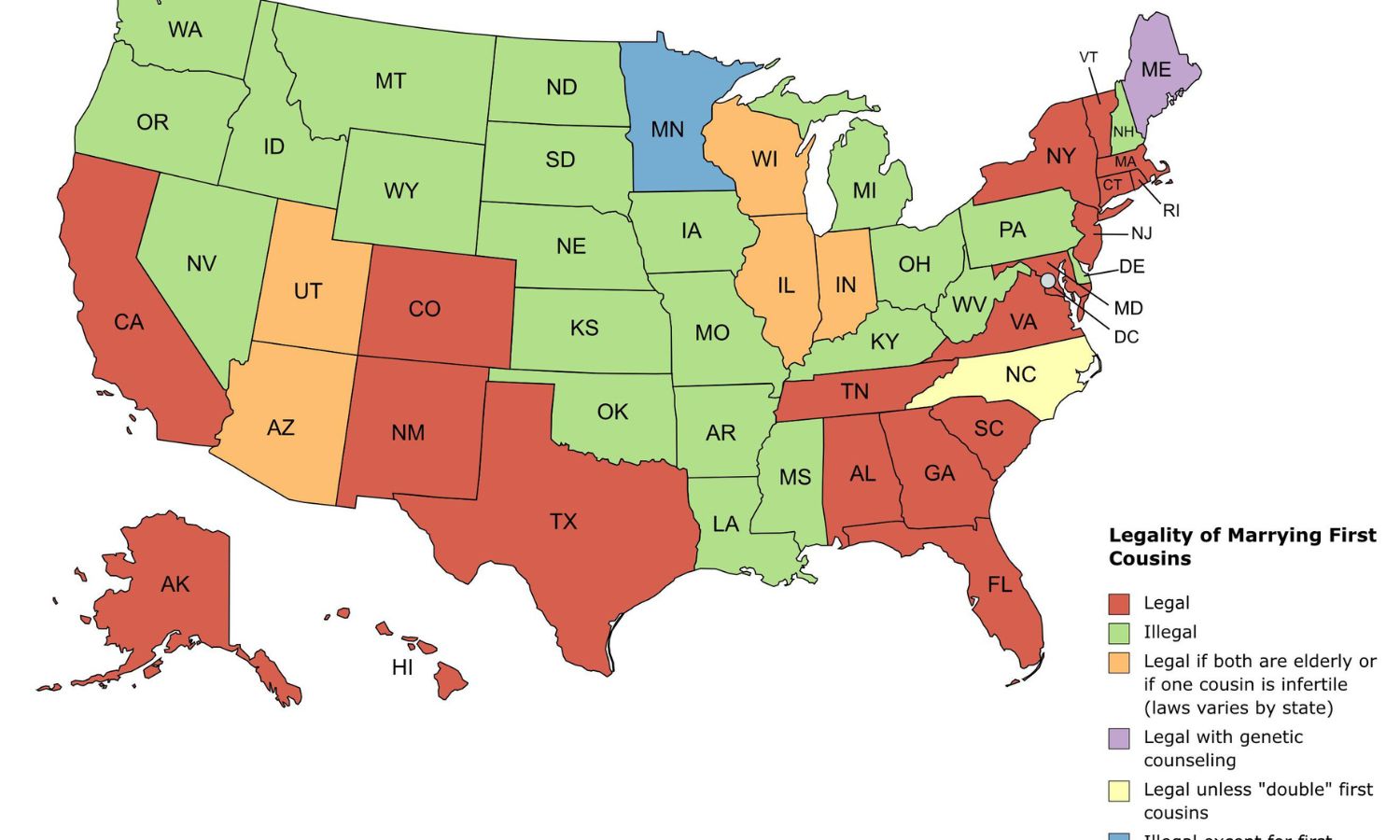The subject of marrying a cousin sparks discussions involving cultural, legal, and moral aspects. In the United States, laws concerning cousin marriage vary widely from one state to another. This article focuses on Florida’s position regarding cousin marriage.
Legal Standpoint
In Florida, it’s permissible for first cousins to wed. State laws prohibit marriages between closer blood relatives, like siblings, but do not extend this restriction to cousins. Couples intending to marry need to apply for a marriage license, which doesn’t inquire about their relation.
Limitations and Factors to Consider
While first cousins can marry in Florida, there are limitations concerning direct lineal consanguineous relatives. Marrying or engaging in sexual relations with a direct lineal relative, such as a parent, child, sibling, aunt, uncle, niece, or nephew, is illegal. Breaching this law is deemed a felony.
Societal Perspectives and Misunderstandings
Society’s views on cousin marriage vary, with some viewing it as taboo while others perceive it as a cultural norm. Misunderstandings often arise due to the lack of comprehension of laws and differences in regulations across states.
Genetic Counseling
For individuals contemplating cousin marriage, genetic counseling is advisable. This aids in evaluating any potential risks for offspring, given that cousins share a closer genetic bond compared to unrelated individuals.
Conclusion
To summarize, marrying one’s cousin is legally permissible in Florida. Nonetheless, it’s crucial to grasp the legal limitations and societal perceptions. Like any marriage, deciding to unite with a cousin should be approached with careful consideration and awareness of the law.

